

Food technology students triumph at national competition
For decades, Cornell’s food science students have dominated a national competition. This year, it was a near-sweep.
All News

Cornell AgriTech hops featured in Seneca Lake summer beer
This week, cool down at one of Seneca Lake’s breweries or restaurants with a pint of PURE Brew made with a new AgriTech hop variety.

Dam removal restores aquatic ecosystem within three years
Water resource managers are increasingly investigating removing dams to restore connectivity and improve aquatic habitats, water quality and fish passage.

Cornell-led initiative boosts access to healthy cassava seed in Tanzania
A $4.8 million gift will allow Cornell and partners to expand a project to improve Tanzania’s cassava seed system.
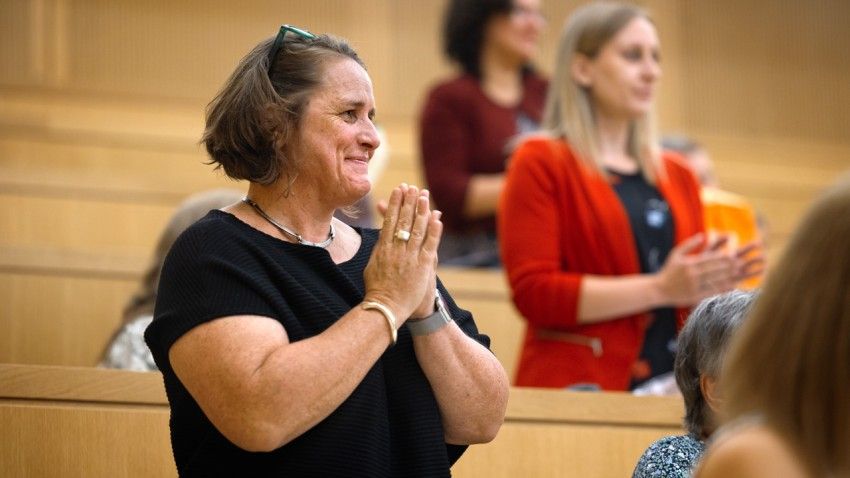
Naturalization ceremony at Cornell welcomes 20 new citizens
Twenty people from 12 countries who swore the oath of allegiance to the United States to become new citizens at a naturalization ceremony held at the College of Veterinary Medicine on July 23.
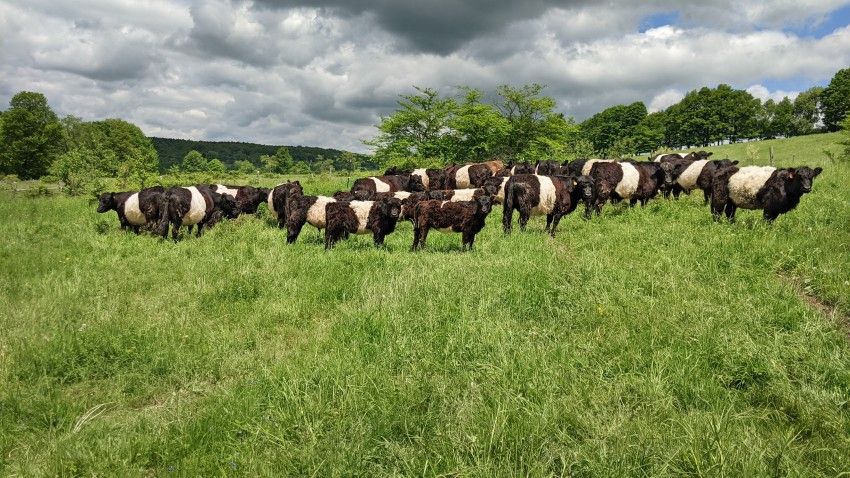
Dung beetles combat flies; insecticide overuse harms beetles
Insecticides added to cattle feed to combat flies “significantly lower” populations of dung beetles, which control flies naturally, new research finds.

New LakeEffect winter barley offers flurry of benefits for NYS
LakeEffect, the first winter malting barley released by the Cornell Small Grains Breeding Program, produces high yields, is disease resistant and has a good malting profile, researchers in the School of Integrative Plant Science said.
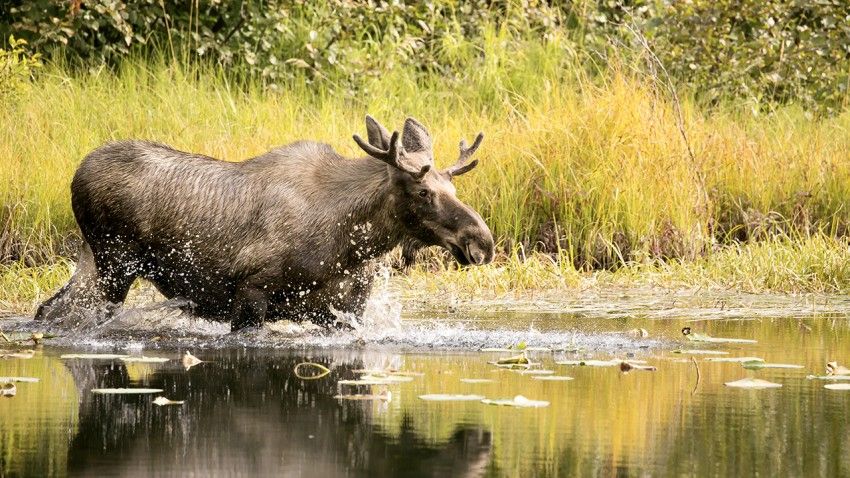
Deer spread parasites that harm Adirondack moose
Two types of parasites that often use deer as hosts, but rarely lead to illness in them, are much more problematic in moose, where they can cause many symptoms and be fatal.

Researchers explore ways to better safeguard US romaine supply
Americans eat more romaine than any other lettuce. But it has been plagued by recurrent foodborne-illness outbreaks.

Toxic algae releases chemicals to suppress competitors
A new study examines how a cyanobacteria manipulates its environment to give itself advantages to take over the water column, leading to harmful algal blooms and mats in lakes during hot summers.
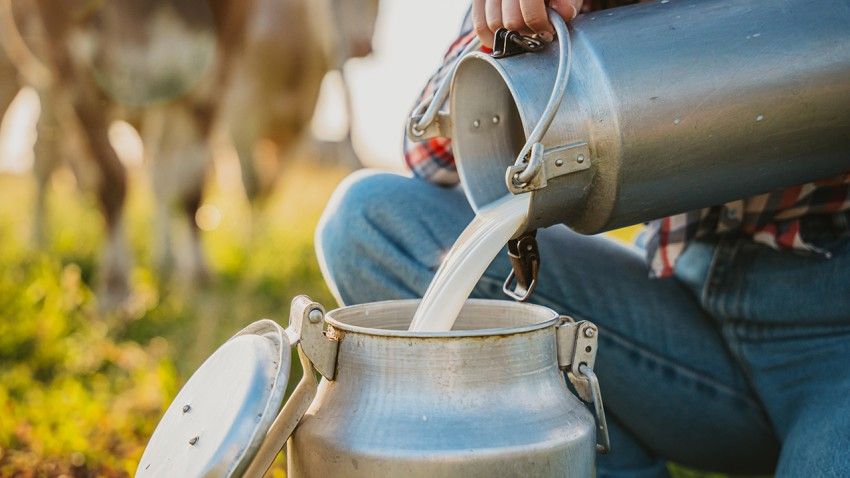
Avian flu causes major adverse impact in dairy herds
The impact of highly pathogenic avian influenza on the poultry industry is well documented. But the health of the dairy industry is also at risk.
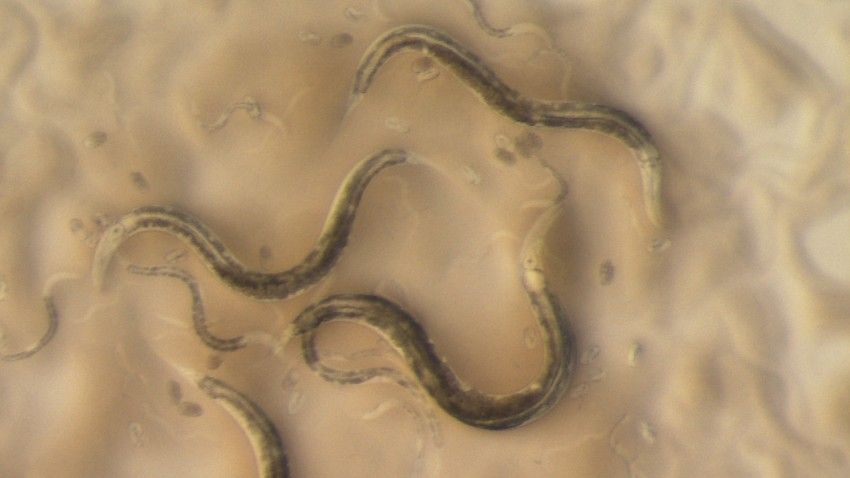
Roundworm genome map benefits synthetic biology, human health
Scientists have sequenced the complete genome of a roundworm used extensively in biological research, opening a new pathway for synthetic biologists to build and test genetic changes in a multicellular animal species.

CTI Announces 2025 winners of Ye Awards for graduate achievements in teaching
At the University-Wide GET SET Teaching Conference, held in April, doctoral candidates Manasi Anand and Ellie Homant, College of Agriculture and Life Sciences, were recognized with Ye Awards for excellence in graduate teaching.

Climate change lowers precipitation, prolongs drought in Southwest
Researchers found that human-caused climate change and air pollution have directly reduced precipitation in the Southwestern U.S., making drought inevitable.
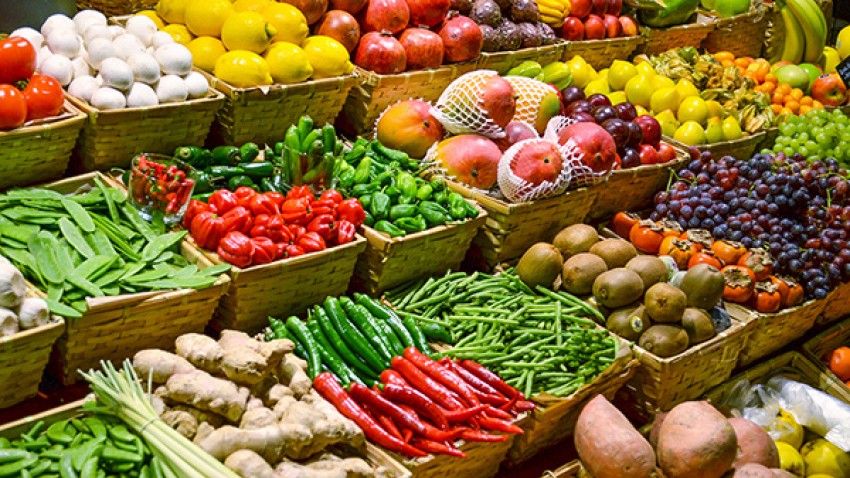
Cornell, Wegmans partner to train growers in food safety
In an increasingly complex food system, ensuring the safety of fruits and vegetables requires collaboration between grocery chains like Wegmans, Cornell and government agencies.
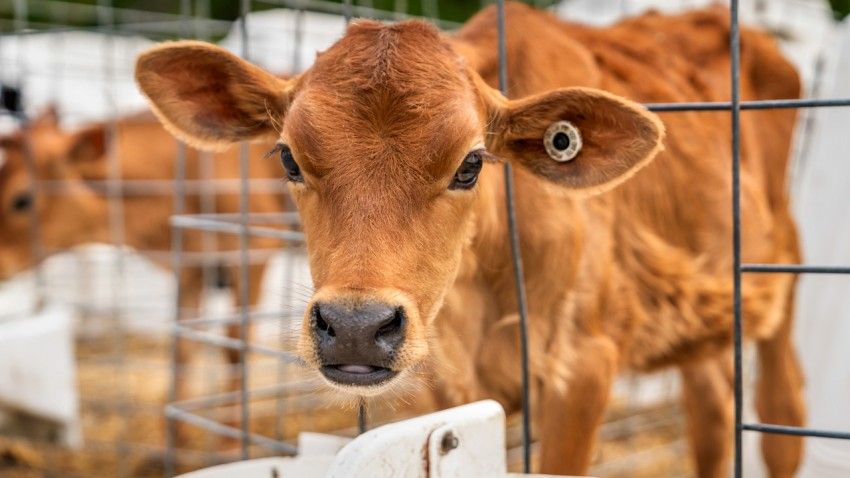
Dairy farm modeling tool boosts sustainability, decision-making
The Ruminant Farm Systems modeling tool is available for open-source collaboration, and is available, free of charge, to all U.S. dairy farmers through the National Dairy FARM Program.
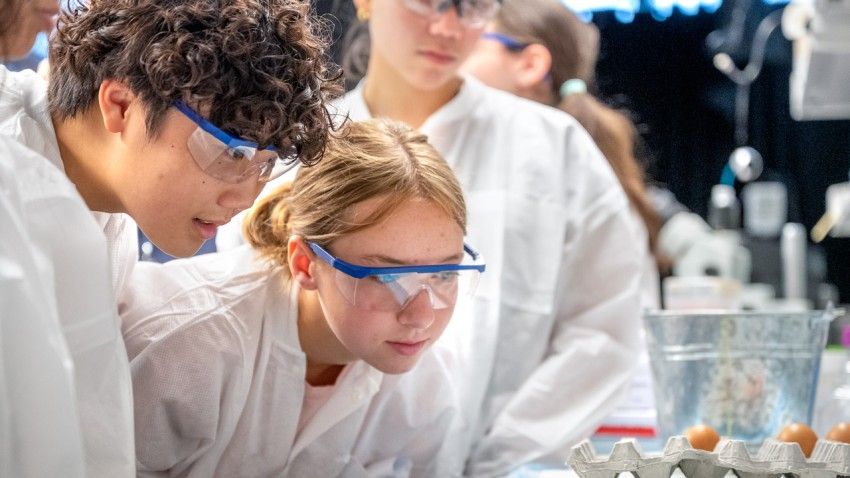
4-H teens come to Cornell to explore potential career paths
Cornell hosted more than 180 middle and high school students from across New York state for the annual 4-H Career Explorations Conference, held June 25-27.
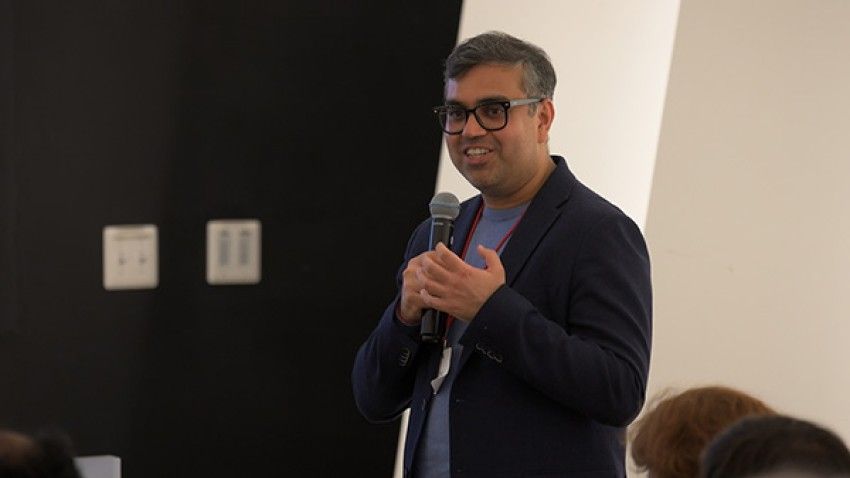
‘Summit’ on LLMs rallies leading AI experts
Leading AI scholars met to discuss fundamental design problems and systemic issues with large language models (LLMs) and how they could better serve the global population.

Cornell PRO-DAIRY celebrates partnerships, showcases ‘farm of the future’
On June 30, dairy industry leaders from New York state toured the Cornell University Ruminant Center, a one-of-a-kind testbed for new technologies and strategies and a crucial resource for the state’s dairy farmers.

Gene for enzyme in saliva associated with Type 2 diabetes
Eventual proof of a clear association between genes that express a salivary enzyme and Type 2 diabetes could lead to genetically testing people at birth to predict their susceptibility.

Research at risk: after-school nutrition and career readiness for NYC middle-schoolers
Funding has been cut short for a national program to help young people feed themselves and their families nutritiously.

Invasive Adirondack smallmouth bass evolve to counter control efforts
The bass rapidly evolved to grow faster and invest more in early reproduction in response to efforts to eradicate them.
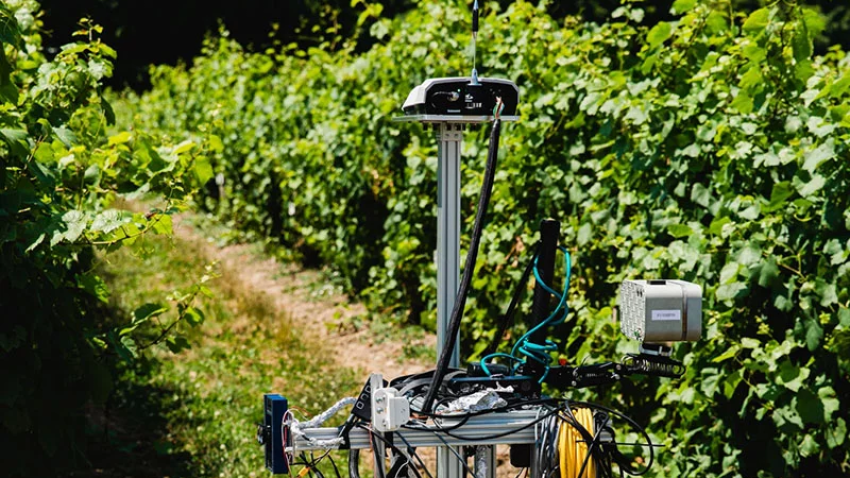
Cornell Institute for Digital Agriculture powers 15 innovative new projects
The Cornell Institute for Digital Agriculture (CIDA) has announced the recipients of its 2025 Research Innovation Fund (RIF) faculty and student grants supporting new, cross-disciplinary research projects designed to improve global food systems through digital innovation.
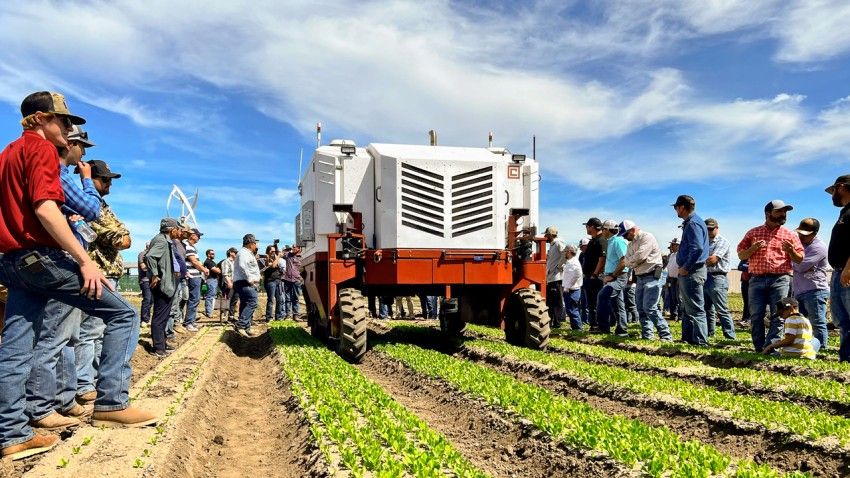
Lasers match common herbicides at zapping East Coast weeds
The study found that the laser weeders worked as well as common herbicides in test plots of East Coast peas, beets and spinach.
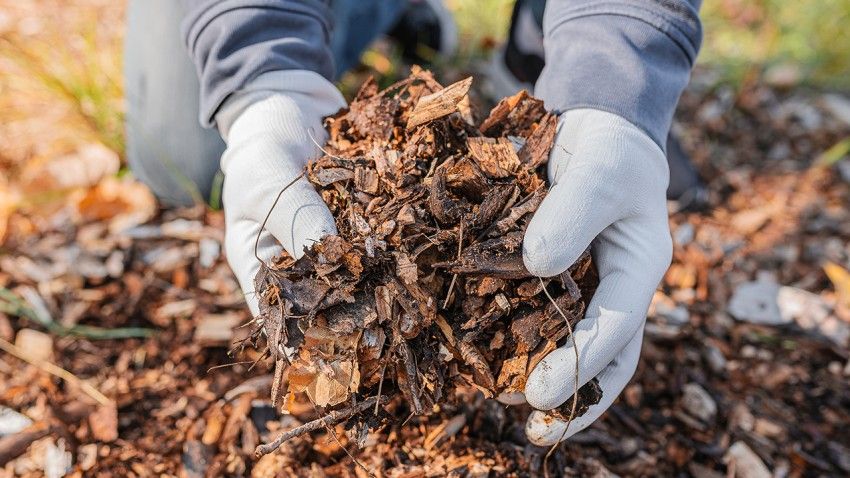
To slow global warming, bury wood debris
Researchers project that burying the wood debris from managed forests could reduce global warming up to 0.76 degrees Fahrenheit by 2100.
Become a Fellow
Stay up to Date
If you have a disability and are having trouble accessing information on this website or need materials in an alternate format, contact [email protected] for assistance.
CIDA Copyright 2023 | CIDA is an equal opportunity employer | Terms of Use | Privacy Policy